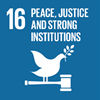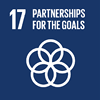
What is the Domestic Revenue Mobilization programme?
The Domestic Revenue Mobilization (DRM) programme, implemented by UNU-WIDER and funded by the Norwegian Agency for Development Cooperation (Norad), aims to address the challenges of raising domestic revenue in the Global South in order to finance public spending in a sustainable manner. The programme focuses on strengthening domestic capacities for revenue collection, which is critical for financing public goods and achieving the Sustainable Development Goals (SDGs), particularly those related to poverty reduction, inequality, and sustainable economic growth. Through its partnerships, the DRM programme contributes to building effective states, reducing inequalities, and supporting sustainable development in low- and middle-income countries.
Phase 2 (2024–27)
Building on the successes of the first phase (2020–23), the second phase of the DRM programme (1 January 2024 – 31 December 2027) seeks to further increase its visibility within policy and research communities. Phase 2 will address the challenges of raising domestic revenue to finance public spending in a sustainable manner, ultimately aiming to combat poverty and inequality in Global South countries. The programme is structured around three interconnected thematic areas: the empirics of taxation and social protection, environmental taxation and just energy transition, and tax and governance work. These themes align closely with UNU-WIDER's 2024–27 work programme, focusing on addressing key global challenges such as inequality, conflict, and fiscal space, as well as the cross-cutting themes of data, gender, and climate.
Current Projects
Tax and governance work
- Tax and conflict: This project explores the role of taxation in conflict-affected states, focusing on how different tax systems and revenue structures influence statebuilding processes and governance in these contexts. As part of our research focus on conflict, the project aims to understand the sustainability of state-building efforts through the lens of taxation
- The political economy of taxation: This research examines the determinants of tax policy in low- and middle-income countries, particularly how political incentives shape the structure and effectiveness of tax systems. The project also includes the Government Revenue Dataset (GRD), a comprehensive resource for analyzing tax trends and government revenue data
- Cross-border taxation: This project investigates the tax implications of cross-border financial flows, including the growing role of crypto-assets. The research aims to understand how these flows impact tax enforcement, particularly in Global South countries
Environmental taxation and just energy transition
- Carbon taxation and fuel subsidies: This project explores the role of environmental taxes in driving sustainable development, including the phase-out of fossil fuel subsidies. The purpose of the research is to understand the impacts of environmental taxes on households, firms, and the environment in Global South countries, with a focus on the cross-cutting theme of climate change
- Carbon taxation and just transition: This research examines structural transformations in Global South countries. Carbon tax policies are critical policy tools for steering economies toward zero-carbon pathways. The research examines how these measures can be designed to promote environmental sustainability and support a just energy transition, while also considering social equity
The empirics of tax and social protection
- SOUTHMOD – simulating tax and benefit policies for development (phase 3): SOUTHMOD models simulate tax and benefit policies to analyze their impact on poverty, inequality, and government revenue. In phase 3, the project will continue to refine these models, incorporating new data and producing policy-relevant research and evidence in collaboration with local partners
- Tax research for development (phase 3): This project builds on previous research to explore new aspects of taxation in developing countries. The focus is on generating high-quality, policy-relevant research that can inform tax policy and help improve tax systems in the Global South
The Domestic Revenue Mobilization programme is a vital initiative aimed at enhancing the capacity of countries in the Global South to mobilize domestic revenue effectively. By focusing on key thematic areas—tax and governance, environmental taxation and just energy transition, and the empirics of taxation and social protection—the programme contributes to more equitable and sustainable development outcomes. Through partnerships, research, and capacity development, the DRM programme seeks to create lasting impact and support countries in achieving their development goals.
Context
Main subject
Theme: 2024-27
 Join the network
Join the network


